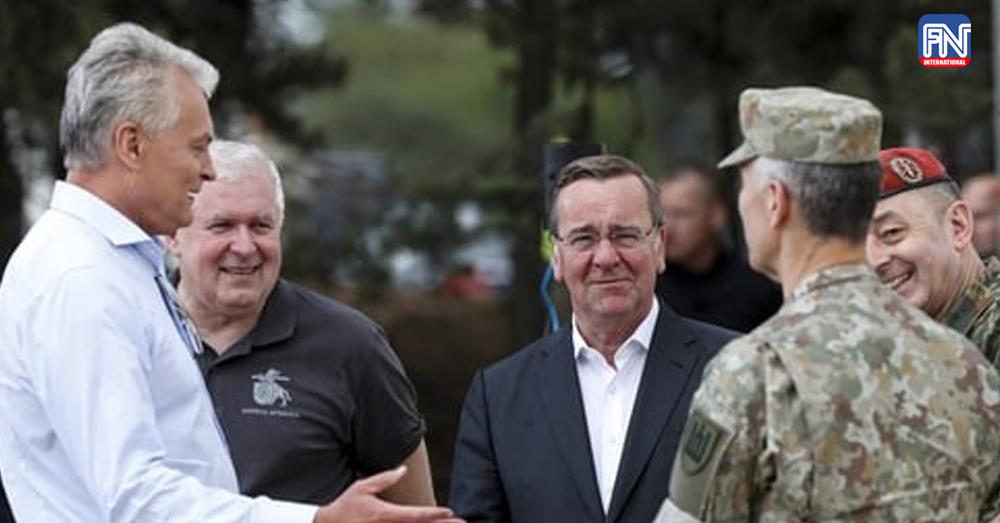VILNIUS, June 26 (AFP) - Germany on Monday said it was prepared to station 4,000 troops in Lithuania after the Baltic nation called on NATO to strengthen its eastern flank.
"Germany is ready to permanently station a robust brigade in Lithuania," Defence Minister Boris Pistorius said on a visit to Vilnius.
He said this was conditional on the "necessary infrastructure" and "compatibility with NATO plans".
Germany has 800 soldiers permanently stationed in Lithuania.
A further 650 are temporarily stationed there, in the wake of Russia's invasion of Ukraine.
Lithuanian President Gitanas Nauseda had warned on Sunday that if Belarus was to host Wagner mercenary group chief Yevgeny Prigozhin after the weekend mutiny in Russia, then NATO would need to boost defences on its eastern flank.
The head of state, whose Baltic country neighbours both Belarus and Russia, spoke after a state security council meeting to discuss Wagner's aborted revolt against the Kremlin.
After Prigozhin called off his troops' advance on Saturday, Moscow said the Wagner boss would leave Russia for Belarus and would not face charges.
Pistorius was visiting Vilnius with NATO secretary general Jens Stoltenberg to prepare for the alliance's summit next month, which Lithuania is hosting.
He said the stepped-up German presence, including 4,000 soldiers, their families and military equipment, came at "significant expense", underlining Berlin's commitment to regional security.
The German minister said he agreed with his Lithuanian counterpart Arvydas Anusauskas that the build-up would go hand-in-hand "with the growth of infrastructure" on the ground.
Pistorius said NATO's plans to strengthen its eastern defences were of "central importance".
Given the "very long eastern flank", the transatlantic alliance must "respect the principle of military flexibility" in the "defence of our shared freedom".
In response to Russia's war in Ukraine, German Chancellor Olaf Scholz had already pledged one year ago to bolster Berlin's military presence in Lithuania.
"We are ready to strengthen our commitment and develop it towards a robust combat brigade that can operate both as a deterrent and defend against an aggression," Scholz said, alongside the leaders of the three Baltic states.
